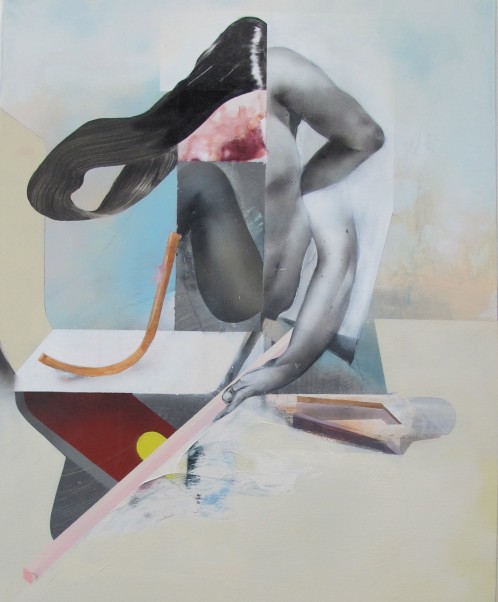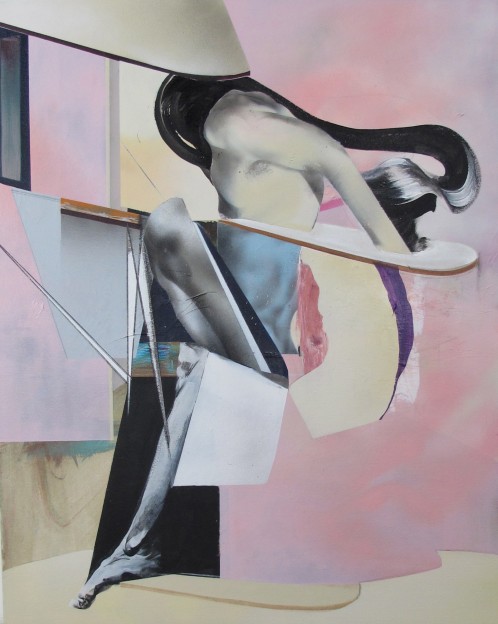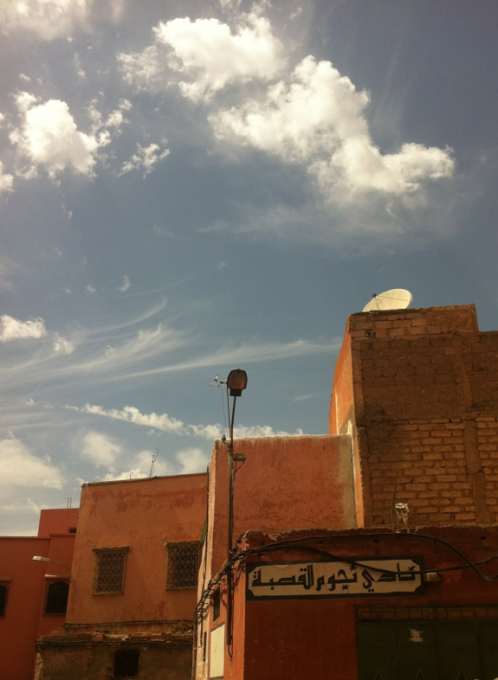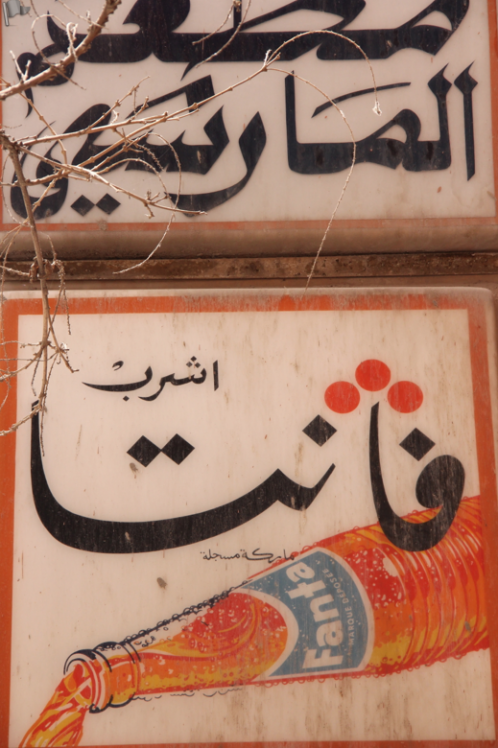In conversation with Jaybo Monk
Marrakech
Together with international artist collective ‚Agents of Change‘, Berlin-based Jaybo Monk recently hold a group show entitled Unfolding.
We sat down with Jaybo Monk and discussed his work and early days as well as his thoughts about the art world.
Wertical: How would you describe your artworks to somebody who has never seen them?
Jaybo Monk: My work is a journey into the bits and pieces of my memories. I am working with the methodic of chance, which means, I let things happen without trying to get any meaning into them. I consider myself as an abstract painter using the figurative element as a medium to play onto some compositions level. I am attached to the idea of cutting things up and putting them together. I think, the concept of a collage is important in all aspects of our century-I deconstruct to reconstruct.
WE: As you say, your works are abstract though figurative. They show body parts as well as colored areas; what do your works express for you?
JM: Painting is a blind, beautiful and desperate effort to be surrounded by the incomprehensible. I neither know what it is meant to look like in advance nor during the process. As such, I don’t exactly know what I am aiming at and what to do about getting there. I use the human body as a base for a relation to the viewer. For me, the human body is one of the most abstract forms. I use the force of contrast between rough and clean, between violent and calm. I am getting kind of a zen approach to it. Furthermore, I am researching some new stimulations to learn how to create new mistakes. I basically do what I love to do and what I love to do confuses me sometimes. But I guess, I like to be confused. I don’t understand any of my works as well as I don’t understand the night sky with the moon and the stars in it either. The fact that humans travelled the moon has given me no explanation to it. Do you understand your dreams? I don’t do so.
WE: You started out as a graffiti writer, today you are an artist working within the confines of the long established art world. In which sense is graffiti still a source of inspiration and a part of your work?
JM: I did start to paint walls but this doesn’t mean that I was doing graffiti. I left home when i was fourteen-I’m a runaway. All I had were the walls of the cities and the places where I hid for the nights. These walls gave me the chance to stay straight in my mind, keep myself focused by the simplicity of esthetics and maintain my dignity.
What I try to reach within the art world is the right of doing what I love to do when I want to do it. I don’t think the art world is a nice place. I would actually prefer to see graffiti out of this sellout mentality made by brokers making money with arrogance and ignorance, but I am happy to know gallery owners who are not interested in fast money, at the same time.
WE: Speaking of inspiration; what are your sources of inspiration?
JM: Humanity , desire , relations , women, conversations, bacon, Baldessari, waves, stars and the sky, but I get the maximum inspiration from the unknown-the methodic of chance and the power of reconsidering myself every minute and everyday, the abscence of the ego, winds, drifted wood, you, me and the space between us…
WE: You are working by your own as well with ‚Agents of Change‘, a collective of 12 artists. In which way do these ways of working differ and are alike?
JM: I have been invited to ‚Agents of Change‘ one and a half years ago and Marrakech was actually my first experience with them. I know and appreciate the work af all the artist involved. The idea of ‚Agents of Change‘ is to change space, transform areas and leave a memorizable trace to our community. I am completely hooked to that. The work differs totally from a group or a solo show, as the main focus is not your name but the brick you bring to the architecture of a project. We follow one concept and give the best to accomplish this common idea. I definitely do other works on my own as with a group of people.
WE: Together with ‚Agents of Change‘, you just presented your exhibition Unfolding at Marrakech-based David Bloch gallery. What was the show about?
MJ: The idea was to work with local products and craftsmen. And Moroccans are fantastic craftsmem. The wall we did was a battle in 40 degrees heat where paint dries so fast that I couldn’t do a perfect brushstroke. By the way, thanks to Alexandra and David for a wonderful time in Marrakech.




Archive
- Dezember 2016 (1)
- Oktober 2016 (3)
- September 2016 (24)
- Juli 2016 (20)
- Juni 2016 (24)
- Mai 2016 (18)
- April 2016 (18)
- März 2016 (21)
- Februar 2016 (11)
- Januar 2016 (20)
- Dezember 2015 (20)
- November 2015 (37)
- Oktober 2015 (30)
- September 2015 (24)
- August 2015 (4)
- Juli 2015 (30)
- Juni 2015 (9)
- Mai 2015 (17)
- April 2015 (23)
- März 2015 (18)
- Januar 2015 (8)
- Dezember 2014 (1)
- November 2014 (3)
- Oktober 2014 (10)
- September 2014 (4)
- August 2014 (2)
- Juli 2014 (3)
- Juni 2014 (2)
- Mai 2014 (5)
- April 2014 (11)
- März 2014 (12)
- Februar 2014 (13)
- Januar 2014 (10)
- Dezember 2013 (5)
- November 2013 (13)
- Oktober 2013 (24)
- September 2013 (18)
- August 2013 (26)
- Juli 2013 (13)
- Juni 2013 (35)
- Mai 2013 (44)
- April 2013 (49)
- März 2013 (61)
- Februar 2013 (54)
- Januar 2013 (46)
- Dezember 2012 (50)
- November 2012 (58)
- Oktober 2012 (62)
- September 2012 (61)
- August 2012 (63)
- Juli 2012 (64)
- Juni 2012 (61)
- Mai 2012 (63)
- April 2012 (51)
- März 2012 (67)
- Februar 2012 (37)



